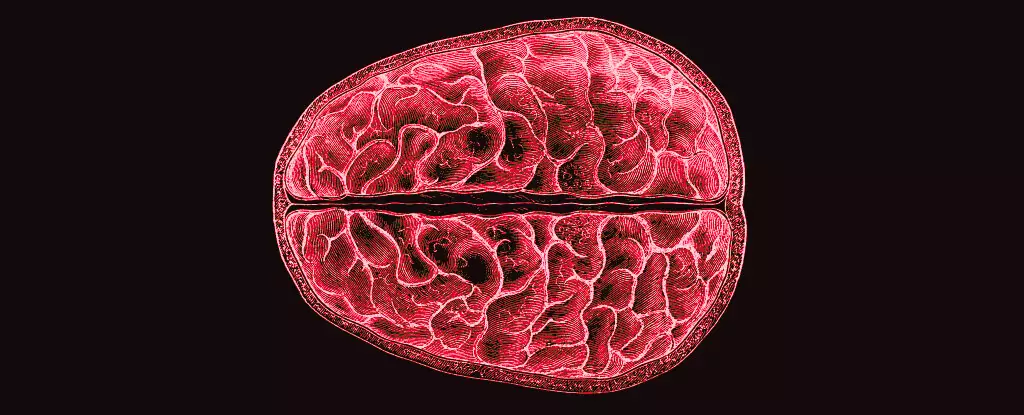The menstrual cycle is often perceived merely as a biological rhythm that dictates reproductive health. Yet, emerging research highlights a more complex relationship between hormonal fluctuations and neurological changes. A groundbreaking study by scientists at the University of California, Santa Barbara, sheds light on how the hormonal shifts experienced throughout the menstrual cycle can induce profound alterations in brain structure.
The intricate workings of hormones, particularly those linked to the hypothalamic-pituitary-gonadal (HPG) axis, play a significant role in governing the menstrual cycle. However, the latest findings reveal they extend beyond reproductive functions and significantly impact cognitive structures within the brain. The team, led by neuroscientists Elizabeth Rizor and Viktoriya Babenko, meticulously tracked 30 women over several menstrual phases to delineate these critical changes.
Historically, research targeting hormonal impacts has centered around cognitive functions, leaving a lacuna in our understanding of structural changes within the brain. In their study, Rizor, Babenko, and colleagues aim to bridge this gap, observing that cyclic fluctuations in hormones can cause structural adjustments in white matter microstructure and cortical thickness. These findings illuminate the need for further exploration into how nuances in hormonal levels can affect mental well-being, particularly in those who menstruate.
The study employed MRI scans to visualize brain structure during three distinct phases of the menstrual cycle: menses, ovulation, and mid-luteal phase. Accompanying the scans, the researchers meticulously measured hormonal levels in the participants to establish correlations between hormonal shifts and changes in brain structure. The data revealed a fascinating interplay between different hormones and brain dynamics.
Notably, prior to ovulation, levels of estradiol and luteinizing hormone peaked, coinciding with changes in white matter indicative of heightened information processing capabilities. This phase appears to bolster cognitive function, which may explain why some individuals report increased clarity and focus around their ovulation period. Additionally, the study found that follicle-stimulating hormone correlates with increased gray matter thickness, suggesting a potential link between hormonal profiles and cognitive resource allocation.
The implications of these study results are far-reaching and compel a deeper inquiry into understanding menstruation’s impact on the human brain. As the researchers observed alterations not only in the gray and white matter volumes but also in cerebrospinal fluid, the interconnectedness of hormonal health and mental states becomes increasingly clear. The variations in brain structure related to progesterone reveal that the post-ovulation phase is a critical period for neurological changes associated with menstrual health.
Interestingly, although individuals with menstrual cycles comprise roughly half of the global population and endure about 450 periods in their lifetime, the research examining the effects of menstruation on brain structure is unexpectedly sparse. This gap prompts questions surrounding the possible links between structural brain changes and mental health issues that many experience during the menstrual cycle, such as mood swings or heightened anxiety.
While this study lays an essential foundation for understanding the connection between hormones and brain structure during the menstrual cycle, it also emphasizes the need for further research. The significant hormonal fluctuations and their corresponding effect on mental health warrant a more nuanced approach in both clinical and scientific settings. Future studies could explore how these structural changes lead to behavioral variations and emotional experiences during different phases of the cycle.
Understanding how menstrual cycles shape cognitive abilities and mental health may help healthcare professionals provide better support for individuals experiencing menstrual-related mental health challenges. In a world where hormonal health is routinely overlooked, it’s vital that research continues to illuminate the intricate ways our biology informs our thoughts, emotions, and behaviors.


Leave a Reply